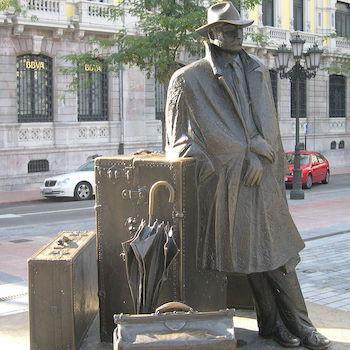Everybody likes to consider themselves open-minded. (Few, if any, people would proudly claim, "Nah, I'm closed-minded.") Like kindness and humility, open-mindedness is widely perceived as a good character trait.
But how common is it, really? I would argue that it's extremely uncommon. To see why, let's start with a negative definition of "open-minded," in which we define what open-mindedness is not.
Open-mindedness is neither gullibility nor a suspension of disbelief. Open-mindedness does not require a person to accept a statement on face value or one that lacks a basis in fact or reality. Open-mindedness is definitely not adherence to any political ideology. (This is a very tempting belief especially for those on the political left, who seem to think that "liberalism" or "progressivism" is synonymous with "open-minded." It is not.) In fact, open-mindedness usually requires a rejection of tribal loyalties.
Perhaps counterintuitively, open-minded people are not required to lack strong beliefs. Vaccines work. The capital of Australia is Canberra (not Sydney). Jesus was a real historical figure. I would expect all open-minded people to acknowledge these facts.
Now, let's examine a positive definition of open-minded. Open-minded people are genuinely curious about the world and open to new experiences. Importantly, open-minded people are willing to listen carefully to opposing viewpoints, identify the flaws in their own beliefs, and modify opinions accordingly. An open-minded person can still believe that he is correct on any given topic, but his opinion should be tentative and subject to change if the facts change. Finally, an open-minded person isn't afraid to admit to being wrong.
How I Became Open-Minded
Like everyone else, I always thought of myself as open-minded. But I wasn't. I didn't realize this until after I left grad school.
I grew up in a small Midwest town. I'm glad I did, but growing up there places severe limits on one's worldview. (I'll note that living in a big city doesn't automatically make a person more worldly. I once asked a young lifelong New Yorker if he had ever visited nature. He said, "Yeah, I've been to the suburbs.")
Moving to Seattle didn't make me open-minded. The only thing it did was make me realize how closed-minded all these self-proclaimed open-minded people were. Going to graduate school at the University of Washington didn't do it, either. While education can certainly open one's mind, it can also make a stubborn person simply more confident in himself. That was me.
What finally made me open-minded was when I became the founding editor of RealClearScience, which is part of the RealClearPolitics family of websites. When I took that job, I forced myself to consider all viewpoints -- left, right, and center -- and to take all scientifically plausible hypotheses seriously. I did this because I felt I had a duty to my readers to be fair. And being fair means listening, even if I disagree.
I also changed my news diet. Cable news played a smaller role. Newspapers like The Economist played a larger role. (Yes, The Economist insists on being called a newspaper, not a magazine. As it so happened, I eventually went on to freelance for The Economist.) When I was tapped to assist at RealClearWorld, my news diet changed radically, and my opinions changed along with it. I found that reading global news and geopolitical analysis posed a major challenge to my preconceived notions and really shook up my worldview.
In addition to all that, I began traveling extensively throughout Europe. (That's one of the perks of marrying a Polish girl. Incidentally, she's Catholic and I'm Protestant, which provided yet another challenge to my closed-minded ways.) I've now spent a considerable amount of time in Poland, which has allowed me to experience the similarities and dissimilarities of life in a different culture.
How You Can Become Open-Minded
Obviously, not everyone has the opportunity to become a website editor, write for The Economist, travel throughout Europe, and marry a foreigner. But most people do have access to multiple intelligent opinions via the Internet. And every person has the ability to listen thoughtfully.
As is most everything in life, being open-minded is hard work. It actually takes conscientious effort. Like being charitable or becoming a violin virtuoso, it requires practice. One does not become open-minded overnight. But you can always start on your journey today.




